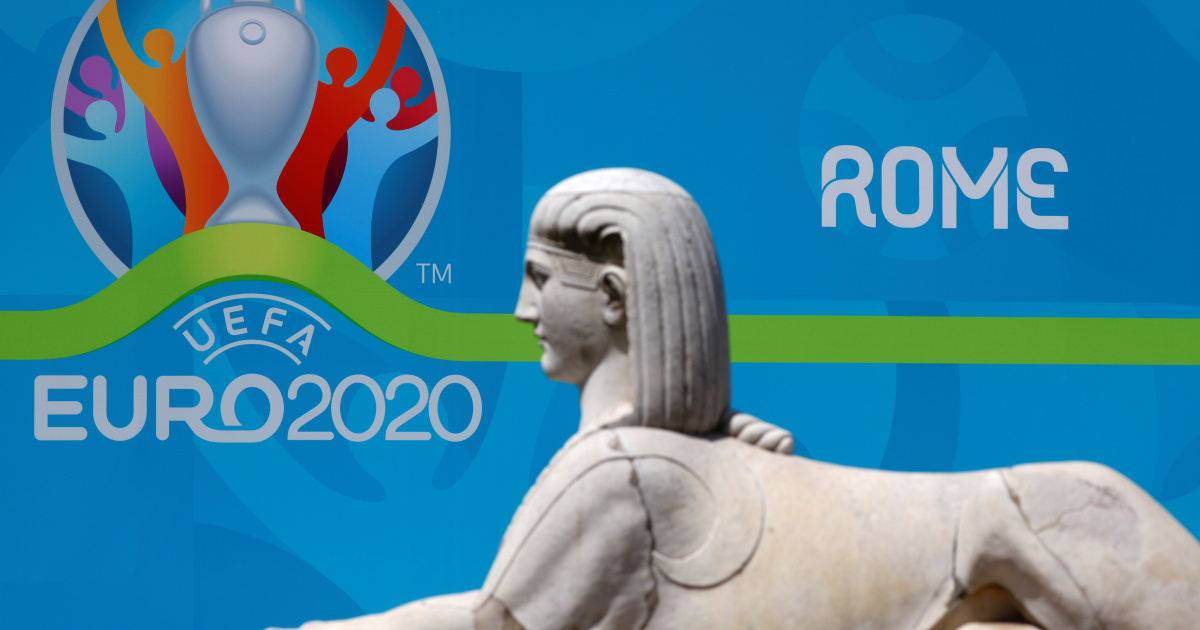Euro 2020 is starting on a Friday, and what was already going to be a unique tournament can be various other reasons.
Even though it was delayed for a year because of the Covid-19 pandemic, the game retains its name.
Euro 2020 will now run from June 11th to July 11th, 2021. Spread over 11 different countries, separated from each other by 4,766 miles.
It was the first major tournament in Scotland since 1998. But, at the same time, England has a home advantage in almost every game. And Wales, in the second Euro in a row.
England and Scotland are part of the same group. The host countries of the European Championship will be held across the whole of the continent as a whole.
It will be the first major tournament game going to be held in the UK since Euro 1996.
With Wembley hosting, the group will continue to play a last-16 tie. And the two semi-final matches and the final.
The UK would have to play a single game with the rest of the world. They will have to win their group and go all the way.
Wales are among the 24 teams, even if they don’t host any of the games.
When and where is the game?
The tournament will start with Italy against Turkey in Rome on Friday, June 11th (20:00 BST). And will end with the final match at the Wembley Arena in London on Sunday, July 11th.
The cities of Glasgow, Amsterdam, Baku, Bucharest, Budapest, Copenhagen, Munich, Rome, and Seville are to host the game.

England’s three group games will be held at Wembley, with Scotland playing their other two matches at Hampden Park. Wales will play in the city of Baku, in Azerbaijan, and Rome, in Italy.
Will the crowds be allowed?
There should be fans in all the 51 games. Dublin’s games have been moved to St Petersburg and London. This is because the cities already have hosting games.
And the Bilbao Games have been moved to Seville because no city would be sure to let fans in their stadiums.
Large crowds can be in the Puskas Arena of 68,000 people in Budapest, 100% of their capacity.
Wembley Stadium and Hampden Park plan to have about 25%of the capacity that is 22,500 and 12,000, respectively.
Wembley, which hosts the semi-finals and finals, can host more fans as the tournament progresses.
The full house 90,000-person home has not been denied by the end of the game if Covid’s limits are lifted by June 21st.
On the other hand, St Petersburg and Baku will have capacities of 50%.
And with the other cities like Amsterdam, Bucharest, Copenhagen, Munich, Rome, and Seville with somewhere between 22% and 45%.
The decision regarding what number of fans to attend was up to the individual regions/countries and not Uefa.
There are no restrictions on the international law of travel or the rules for quarantine rule for the match ticket holders.
Although some countries do otherwise, which means that supporters must obey existing laws.
Do the fans need to be tested?
Thousands of fans who bought and paid for tickets in 2019 had their tickets canceled and refunded due to the limited capacities.
But fans who are lucky enough to keep their tickets will have a few obstacles to remove before they are being allowed to go to the games.
Each city has its own rules. But fans need to wear a mask for every sport unless they have got a doctor’s certificate.

There will be sanitizer stations at all the stadiums. And fans are asked to stay in their seats during the game as much as possible. As well as avoid close contact with the other fans.
Glasgow, Munich, and Baku will still confirm any entry requirements, although that may change.
In London, Bucharest, Budapest, Copenhagen, and Rome, evidence of a vaccine or negative test will suffice.
Wembley’s rules belong to the group categories at the moment.
Fans need a negative test to get into the games in Amsterdam and Seville. So St Petersburg plans to test the temperature.
What other changes did Covid create?
Croatia and the Czech Republic are other groups in England and Scotland. Both were meant to have their bases in Scotland.
But now, they have returned to their home countries and will simply fly for each game.
Scottish law meant that the entire squad would have to be separated if there was a Covid case in the team.
The teams will be allowed to choose a squad of 26 players instead of the usual 23.
To reduce the burden on players after a stressful club season. And give managers more options in the event of a Covid outbreak.
The rule that allowed each team to make up to five substitutes per game was already enforced.
Teams will be on the bench and tested before each game. There were no compulsory vaccinations for the players.
How can UK fans watch without tickets?
Football fans can watch Euro 2020 matches at pubs across the UK. However, the number varies from nation to nation.
In England and Wales up to six people or two households any higher number can meet. In Northern Ireland, six people come from two families.
The restriction of Scotland varies in different regions. From six people from three families to ten people from four houses.

Many people are allowed to meet in the beer gardens in England, Wales, and Scotland.
You can watch the game at a friend’s house. But the number is written in different levels in the UK.
The official location for Uefa fans in England is Trafalgar Square in London.
While entry is free, and a ballot provides tickets. It will feature all English games as well as semis and finals.
The location for Scottish fans is in Glasgow Green. However, Manchester, Birmingham, and other cities have special areas.
What are some of the conflicts surrounding the Euro?
From Seville in the West of the continent to Baku, 4,766km farther East, more flights will be involved in Euro 2020. Both for players and thousands of fans who want to watch their team.
Covid restrictions mean that the volume of air traffic will be far lower. Then one initial estimate of an extra two million plane trips during the tournament. But it will still be significant.
Swiss fans may have to travel more than 20,000km. And travel to Baku and back to central or western Europe in the middle.
Andrew Simms, the Rapid Transition Alliance co-ordinator and the co-director of the New Weather Institute. Said: “It’s almost like going out. How can we organize competitions to increase our impact on the environment?”
There are doubts about the appropriateness of encouraging fans from 24 nations. To visit up to five countries in one month during the epidemic.
Who are the favorites?
Entertainment analysts Gracenote speculated that England would come out on top for the second time. Behind Belgium by less than 1% due to their domestic profits.
However, the analyst is powered by Opta data. Only ranks England’s Gareth Southgate in ninth place in their list of potential winners.
France is considered by many to be a favorite. The world champions and Euro 2016 finalists have an impressive XI of the first.

And deepest of the squad is encouraged by the return of prominent Real Madrid striker Karim Benzema. From a long-term international exile.
They are in a tough group along with the defending champions Portugal. And Germany won the 2014 World Cup. But, both teams can qualify for the final 16.
This could be one of the last opportunities for the Belgian golden generation to win a major tournament. They are one of the best teams in the world at Fifa.
Luis Enrique‘s Spain champions in 2008 and 2012 entered the tournament in good form, losing once in 24 games.
What are the opportunities for indigenous peoples?
As already discussed, England may be one of the favorites, with about six of the seven games at Wembley.
If they win their team, their only game abroad. And if they travel a long way, it could be a quarter-final in Rome.
The last-16 tie for the winners in their squad should have been in Dublin. But it was moved to Wembley, where Ireland did not guarantee to allow fans to the games.
Scotland is in its first major tournament since the 1998 World Cup. The analyst gives them 0.1% of Euro 2020 winners. Just above Slovakia and Northern Macedonia.
“It’s not just a matter of arrival, and it’s party time,” said Scottish Manchester United’s Scottish midfielder Scott McTominay.
“We want to play well. And that’s the only desire the manager has told us. We want to get results.
“It’s not a matter of being easy-cozy. And it’s our first tournament in 23 years.”
Wales are in their second consecutive European tournament, never ready for one before.
They were a surprise at Euro 2016 under Chris Coleman. And Gareth Bale in impressive form, defeating Belgium on their way to the semi-finals.
Rob Page is now in charge, with Ryan Giggs not taking the reins because of legal issues. But few people expect Wales to have the same run.
Gracenote gives them a 54% chance to get out of the group that represents Italy, Switzerland, and Turkey.
Ashley Williams, the former Wales captain in 2016. Said: “Looking back on what we did is not a way to watch the tournament because that has been one thing. And does not affect what will happen this time around.
“They don’t have to reach the semi-finals or finals to be counted as successful.”
